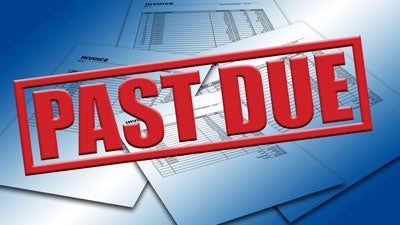
Small business owners are blessed by legions of customers and clients who pay their bills on time without ever having to be reminded.
However, sometimes that’s not the case so you need to be ready to deal with people who are ignoring their financial responsibility to you. And because the majority of our customers are never a problem, it’s easy to be unaccustomed and unprepared to solve any payment problems that might arise.
Let me start with a general but very important piece of advice: Have all the facets and procedures of your billing and follow-up clearly established and adhered to. This system must run like clockwork to conveniently handle the great customers and to persistently deal with the occasional deadbeat. Don’t tackle billing problems on an ad hoc basis. Be prepared so you don’t have to make it up as you go along. In the same way, always be aware of how much you are owed and how those debts are aging.
Related Article: What to Do When Customers Don’t Pay
Let’s outline some principles and strategies to use when you run into payment problems. We’ll start out with the soft touch and then ramp it up.
Be personal. If a bill is being ignored make personal contact with the debtor. If your business involves account reps, have the rep make a phone call to see what is happening. When the client attaches a familiar face and voice to the problem, it’s more likely to get resolved.
Be knowledgeable. Find out if the company or individual is having financial problems. It’s important to be able to sort out honest people in difficult situations from dishonest or negligent individuals. You may not want to keep the second group as customers. If you have a good customer who has encountered a rough patch, it’s probably worth your time to come up with a payment plan.
Be consistent. You need to handle all your billing activities consistently and in a timely manner. I recommend billing as soon as possible after services are rendered or product received. Follow-up notices should go out precisely as scheduled. Define exactly the point at which a person picks up the phone and makes personal contact. This makes the process fair for everyone and ensures that it happens.
Be creative. I know a medical group that has a separate department with a separate mailing address called “ABC Medical Associates Collections.” They send out a letter reading something like “ABCMA Collections” has received your bill for $99.” The note then explains the facts of the situation, requests payment within 10 days or the information will be forwarded to a credit reporting agencies. Red “overdue” stamps and highlighter pens also get people’s attention.
Be serious. Let your delinquent clients know that you will take them to small claims or superior court, depending on the amount of debt. Or you may want to turn them over to a collection agency or get a lawyer involved. Don’t allow these to be idle threats; be sure you take whatever action you have threatened.
You didn’t start your small business to be a bill collector, so none of this is anything you want to do. However, sometimes it becomes necessary. Don’t shrink from your financial responsibility to your business.
This article was originally published by Susan Solovic
Published: May 12, 2015
3263 Views
3263 Views












